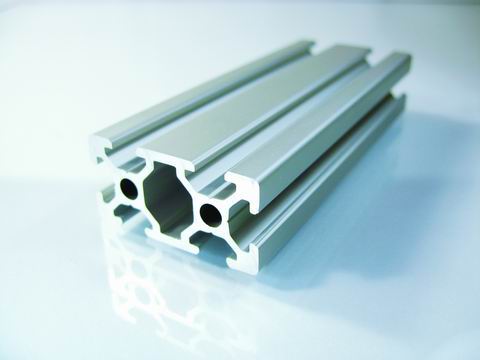 With the attention of the society to the ecological environment and constant recognition of the recyclable development, many industrial enterprises have begun to take the road of green development and circular development.
With the attention of the society to the ecological environment and constant recognition of the recyclable development, many industrial enterprises have begun to take the road of green development and circular development. The author found that the industrial aluminum profile industry responded positively to the government's call for energy-saving and emission reduction, strengthened the transformation of equipment and processes, continuously improved the efficiency of resource utilization, and enabled energy-saving emission reduction and clean production to be carried out simultaneously, thereby achieving good economic, environmental, and social benefits.
It is understood that aluminum is a very rich metal element on the earth and its reserves rank second in the metal. However, it was not until the end of the 19th century that aluminum emerged as a competitive metal in the industrial field and it became popular all over the world. In fact, unlike the upstream electrolytic aluminum industry, industrial aluminum profiles are low-carbon and environmentally friendly industries, and the consumption of water and electricity is extremely low. Take China Zhongwang, the world’s second-largest industrial aluminum profile R&D manufacturer, as an example, the cost of water and electricity consumption accounts for its The proportion of the entire production cost is less than 2%.
All along, China Zhongwang continuously explores the development model of the green economy and uses practical actions to build a green recycling industry chain from production to application. Industrial aluminum products in the production process, need to go through aluminum ingot melting, mold development, aluminum rod extrusion and other steps. Aluminum rods, which are the key raw materials for industrial aluminum profiles, and especially aluminum rods with high-performance alloy compositions, play a crucial role in product quality. The production of aluminum rods requires melting, purification, impurity removal, degassing, and deslagging. The casting process is the largest link in the energy consumption of industrial aluminum profiles. However, most of the industrial aluminum extrusion industry adopts fuel oil to produce aluminum rods. Due to various factors such as market prices, environmental protection, and production safety, it is imperative that higher-quality industrial fuels be used instead of the existing liquefied petroleum gas because liquefied natural gas is Compared with liquefied petroleum gas, it has the advantages of low price, stable combustion, less exhaust emissions, and high safety performance, and is an ideal fuel for smelting aluminum rods.
As the industrial aluminum profile industry is a capital-intensive industry, some small and medium-sized enterprises are trapped in financial constraints, backward technology and equipment, low resource utilization, and the protection of local interests, resulting in high investment, high consumption, and low efficiency of some enterprises. The problem is that it will take time to completely eliminate these backward production capacity and improve the efficiency of energy use.
Liquid Potassium Zinc Stabilizer
Liquid Potassium Zinc Stabilizer,Pvc Chemical Auxiliary Agent,Potassium Zinc Heat Stabilizer,Potassium Zinc Stabilizer
Jiangsu Greya New Material Technology Co., Ltd. , https://www.greyastabilizer.com
